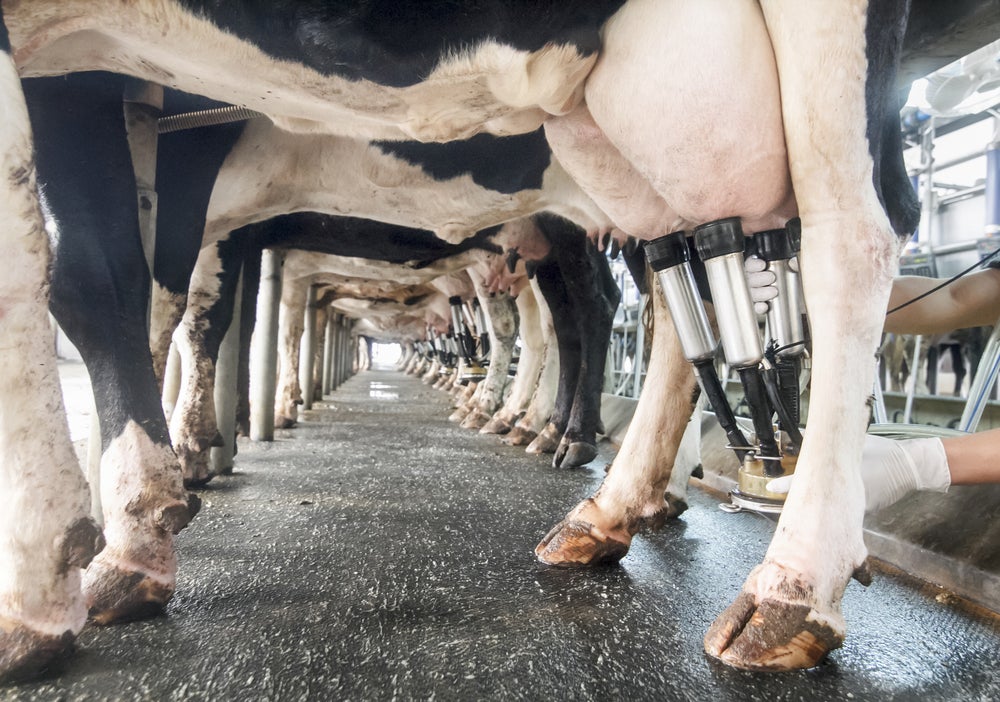DAILY Bites
-
USDA launches National Milk Testing Strategy, a mandatory nationwide program to test raw milk for H5N1, enhancing biosecurity and safeguarding dairy herds and farmworkers.
-
New Federal Order issued requiring nationwide raw milk sampling, epidemiological data sharing from affected herds, and mandatory reporting of positive test results by laboratories and veterinarians.
-
Five-stage implementation plan icludes state-specific strategies for surveillance, containment, and elimination of H5N1, progressing toward a long-term goal of national herd freedom from the virus.
DAILY Discussion
Today, the U.S. Department of Agriculture’s Animal and Plant Health Inspection Service announced the launch of its National Milk Testing Strategy. This initiative builds on measures established by USDA and its federal and state partners following the March 2024 detection of highly pathogenic avian influenza H5N1 in dairy cattle.
The USDA issued a new Federal Order, accompanied by guidance, mandating the collection and sharing of raw milk samples nationwide for H5N1 testing. Developed with input from state, veterinary, and public health stakeholders, the guidance aims to strengthen surveillance of the nation’s milk supply and dairy herds.
“Since the first HPAI detection in livestock, USDA has collaborated with our federal, state and industry partners to swiftly and diligently identify affected herds and respond accordingly. This new milk testing strategy will build on those steps to date and will provide a roadmap for states to protect the health of their dairy herds,” said Agriculture Secretary Tom Vilsack. “Among many outcomes, this will give farmers and farmworkers better confidence in the safety of their animals and ability to protect themselves, and it will put us on a path to quickly controlling and stopping the virus’ spread nationwide. USDA is grateful to our partners who have provided input to make this strategy effective and actionable, and we look forward to continued collaboration in seeing this through.”
The NMTS establishes a structured, uniform, and mandatory testing system designed to identify affected states and herds, enhance biosecurity measures, and protect farmworkers. Vilsack emphasized that the strategy will not only safeguard dairy herds but also ensure farmers have confidence in protecting their livestock and themselves, ultimately helping to halt the virus’s spread.
“This testing strategy is a critical part of our ongoing efforts to protect the health and safety of individuals and communities nationwide,” said HHS Secretary Xavier Becerra. “Our primary responsibility at HHS is to protect public health and the safety of the food supply, and we continue to work closely with USDA and all stakeholders on continued testing for H5N1 in retail milk and dairy samples from across the country to ensure the safety of the commercial pasteurized milk supply. We will continue this work with USDA for as long and as far as necessary.”

The Federal Order outlines three key requirements:
- Raw milk samples must be shared with USDA upon request from dairy farms, transporters, and processors.
- Herd owners with positive cases must provide epidemiological information to support contact tracing and surveillance.
Private labs and state veterinarians must report positive test results to USDA. - Initial testing under the NMTS begins the week of Dec. 16, 2024, with California, Colorado, Michigan, Mississippi, Oregon, and Pennsylvania included in the first round. States will progress through five NMTS stages, ranging from initial nationwide milk silo monitoring to long-term demonstrations of H5N1 freedom.
Since March 2024, USDA has leveraged decades of influenza management experience and partnerships with state health officials to better understand and control the virus. These efforts have included extensive free testing through the National Animal Health Laboratory Network (NAHLN) and support programs for producers, such as biosecurity funding and veterinary care assistance.
Herd owners are encouraged to participate in USDA’s producer support programs. Additional details can be found through the Animal and Plant Health Inspection Service website or at local USDA Farm Service Agency offices.

